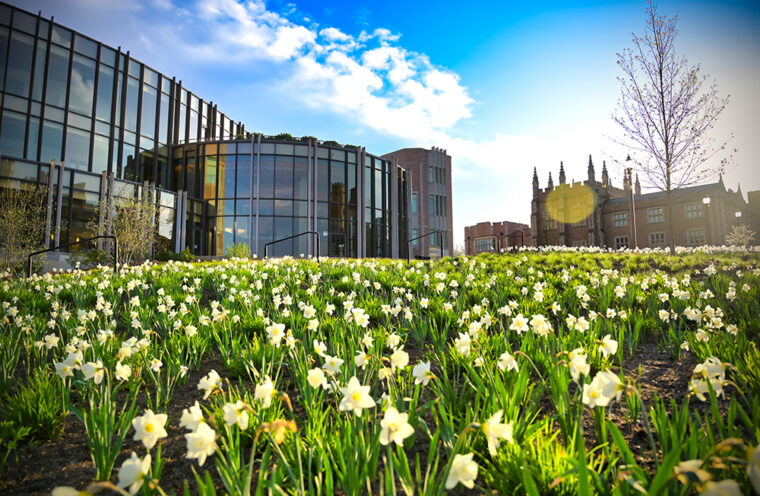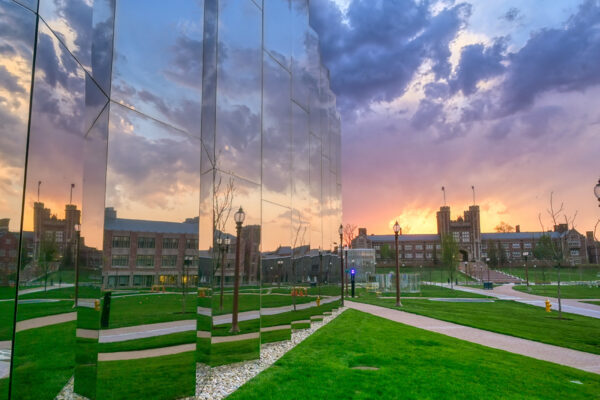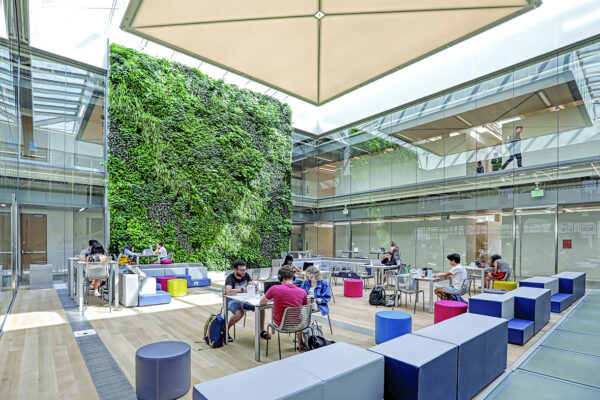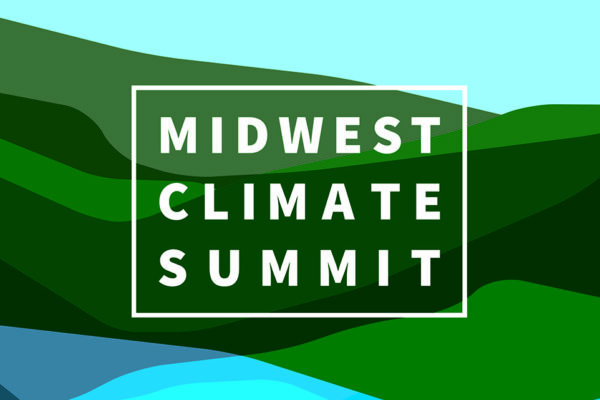At Washington University in St. Louis, the commitment to being a leader in sustainability on campus, throughout the community and around the world runs deep. On this, the 50th anniversary of Earth Day — and every day — it’s a core priority that weaves its way through all aspects of our community, work and operations.
Even when those operations have been turned upside-down by a global pandemic.
COVID-19 forced units across the university to quickly pivot to shift teaching and other functions to wholly online formats. The team charged with advancing the university’s sustainability and climate change platform adopted that same adaptability.
“Washington University is a vastly different place than it was six weeks ago, but our efforts to address climate change haven’t stopped,” said Beth Martin, interim director of the university’s Climate Change Program. “On this 50th anniversary of Earth Day, our work continues on behalf of the university, our community, region and world.”
The Climate Change Program, the Office of Sustainability and the Environmental Studies program in Arts & Sciences knew that while the modes of learning, practice and policy design all suddenly shifted, their important work needed to continue.
They adapted planned programs and panel discussions to online formats and seamlessly maintained their work with students and organizational and governmental partners, including the city of St. Louis.
Through the sustainability office’s RESET (Renewable Energy Student Engagement Team) program, five Washington University students are working closely with Catherine Werner, sustainability director for St. Louis, to make it faster, easier, and more affordable to go solar in the city. The enhancements to the city’s solar program are being made under the auspices of the national SolSmart initiative, and the RESET students continue to develop SolSmart recommendations and discuss them via weekly Zoom meetings.

“Washington University and RESET students have provided invaluable capacity to the city’s sustainability program,” Werner said. “It is only due to this terrific partnership that the city is able to build on its recent Solar Readiness ordinance, and pursue the highest SolSmart designation available. “
In addition, nearly 20 student interns in the Energy, Environment and Sustainability Internship Program continued their work remotely to advance climate, environment and sustainability work on campus and with community partner organizations.
While many sustainability-related events were planned to be held on campus in April, the change to a virtual format did not impact participation.
Hundreds of people across the state joined a Climate Solutions for Missouri webinar as part of the nationwide “Solve Climate By 2030” initiative. The panel discussion, hosted by Washington University and the University of Missouri-St. Louis, included climate and energy leaders, who explored climate solutions for Missouri.
The last climate conversation of this year, a renewable energy careers panel featuring four recent university alumni, shifted to a virtual format, with nearly 100 people taking part, continuing to engage and educate students from afar.
And the second phase of Grow Solar St. Louis — a solar group-purchasing and education program for local residents — also moved forward virtually this week, with upcoming informational “Power Hours” switching to an online format. Dates and registration links for the Power Hours can be found on the Grow Solar St. Louis website.
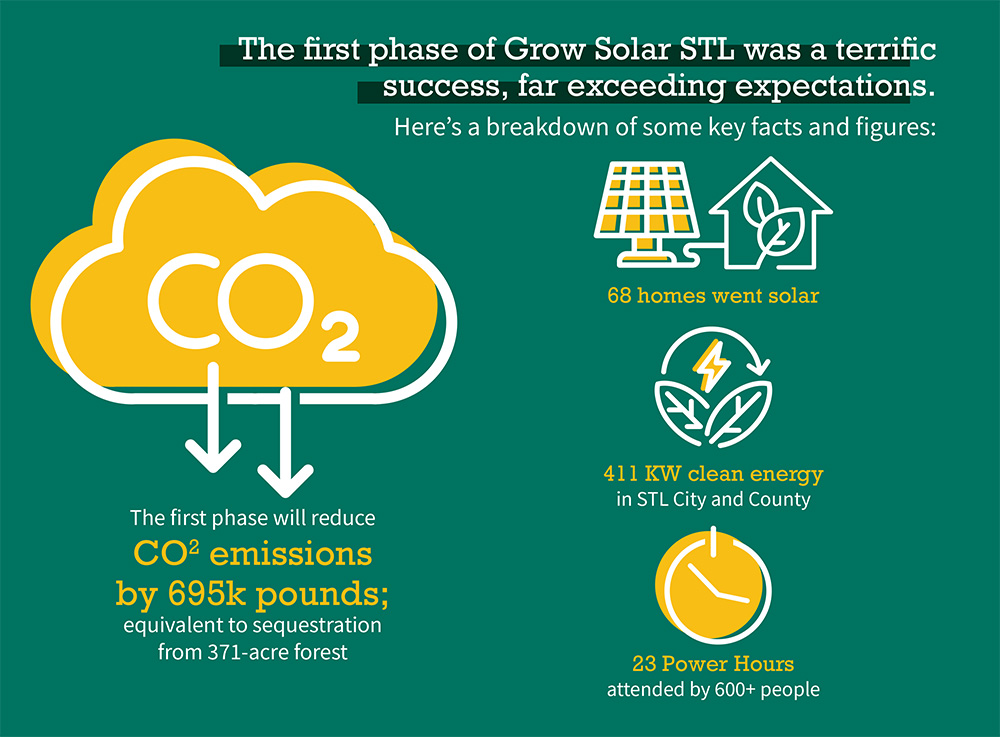
“We were thrilled by the first phase of Grow Solar St. Louis, which far exceeded our expectations,” Valko said. “There were 70 homes that installed solar, adding 424 kilowatts of clean, renewable energy in the city of St. Louis and St. Louis County.”
“While Phase 2 will be launched online, we’re hopeful that we’ll have a high level of participation,” Valko continued. “Programs like Grow Solar STL and a commercial solar group-buy program currently under development are essential to accelerate the adoption of renewable energy and to address climate change in our community. Collaborative partnerships and creative solutions like Grow Solar St. Louis are especially important now.”
The Washington University community can support sustainability efforts from home. To make up for previously planned, then canceled, Earth Week events, the sustainability office issued an online Ecochallenge. The challenge, which continues through the end of April, is designed to allow participants to take actions to practice and reinforce good green habits. The office also provided tips for making home offices greener.
“WashU remains committed to rapidly advancing climate solutions and sustainable practices and will keep pushing ahead — albeit virtually for now — to ensure a cleaner, healthier city, region and world,” Valko said.
